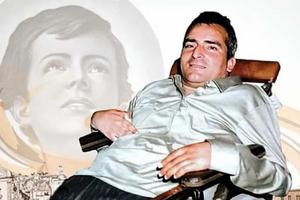Gallaudet Employee Allowed Back After Maryland Marriage Controversy
Angela McCaskill was suspended for three months after signing a petition in favor of allowing voters to pass judgment on a same-sex ‘marriage’ law.

WASHINGTON — A Maryland university employee has been reinstated after spending three months on administrative leave for signing a petition to allow locals to vote on same-sex “marriage” in the state.
“The work of the university’s Office of Diversity and Inclusion is vital and must continue in an active and vibrant way,” said T. Alan Hurwitz, president of Gallaudet University, which serves the deaf and hard of hearing.
According to The Associated Press, Hurwitz explained in a brief Jan. 7 statement to the campus community that Angela McCaskill was being returned to the position of chief diversity officer.
“I personally look forward to working with Dr. McCaskill on the work of that office,” he said.
McCaskill, the first deaf black woman to earn a Ph.D. from Gallaudet, has been on paid leave since October, when it was discovered that she had signed a petition asking that Maryland voters be allowed to decide whether same-sex “marriage” should be implemented in the state.
A law to redefine marriage in the state of Maryland passed in March 2012. However, it was delayed from taking effect until January 2013, allowing time for the measure to be put before the people in a referendum.
McCaskill was one of more than 200,000 Maryland residents who signed a petition to allow voters in the state to approve or reject the law.
She was consequently placed on administrative leave, with Hurwitz stating in an email that “Dr. McCaskill has participated in a legislative initiative that some feel is inappropriate for an individual serving as chief diversity officer.”
Censorship Concerns
The move came amid increasing concerns of censorship of those who support traditional marriage. A number of organizations criticized the decision to place McCaskill on leave.
Shortly after her suspension from the university, Tony Perkins, president of the Family Research Council, said in a statement that the decision “reflects the troubling trend of intimidation and bullying tactics against those who uphold marriage as the union of one man and one woman.”
In August, a security guard was shot at the Family Research Council headquarters in Washington after the organization was labeled a “hate group” for its views on marriage.
Perkins warned that a redefinition of marriage will lead to “more of these discriminatory actions taken against anyone who espouses marriage as it has always been defined.”
The Family Research Council launched a petition to reinstate McCaskill, which drew more than 22,000 signatures.
In an Oct. 16 press conference, McCaskill said that she was “dismayed” at the “intolerance” and “intimidation” she had experienced after more than 20 years of service to the university.
McCaskill has said that she is not anti-homosexual and has refused to take a public stance either for or against the law. She explained that she believes in the political process and thinks that the decision should be made by the people rather than the legislature.
The referendum to uphold the same-sex “marriage” law in Maryland passed narrowly in November, allowing same-sex couples to receive marriage licenses on Jan. 1, 2013.
The Catholic Church teaches that authentic marriage involves only one man and one woman.
In an address in June 2009, Pope Benedict XVI stated, “The different present forms of the dissolution of marriage, as well as free unions and ‘trial marriage,’ including the pseudo-marriage between persons of the same sex, are … contrary expressions of an anarchic freedom that appears erroneously as man’s authentic liberation.”
The Pope said this pseudo-freedom is based on “a trivialization of the body, which inevitably includes the trivialization of man. Its assumption is that man can make of himself what he likes. Thus his body becomes something secondary, which can be manipulated from the human point of view, which can be used as one pleases.
“Libertinism, which appears as discovery of the body and its value, is in reality a dualism that makes the body contemptible, leaving it, so to speak, outside the authentic being and dignity of the person.”












